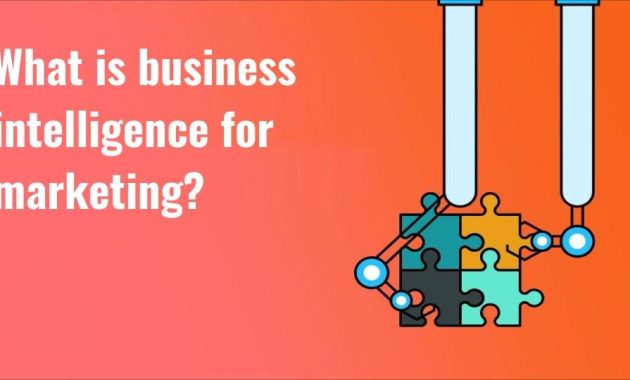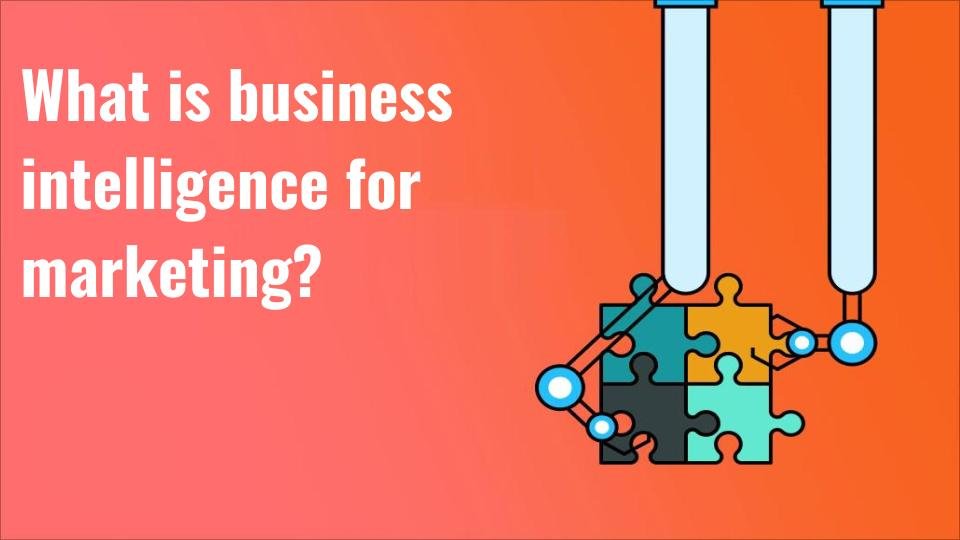
Unlocking Marketing Success: A Guide to Using Business Intelligence Software
In today’s data-driven landscape, marketers are constantly seeking a competitive edge. The ability to understand customer behavior, predict market trends, and optimize campaigns is paramount. This is where Business Intelligence (BI) software steps in. This comprehensive guide explores how to use Business Intelligence software in marketing. We will delve into its applications, benefits, and implementation strategies.
Understanding Business Intelligence in Marketing
Business Intelligence (BI) software empowers marketers to transform raw data into actionable insights. It involves collecting, analyzing, and interpreting data to inform strategic decisions. Unlike traditional marketing analytics, BI software goes beyond basic reporting. It offers advanced features like data visualization, predictive analytics, and real-time dashboards. This enables marketers to gain a deeper understanding of their target audience, campaign performance, and overall marketing effectiveness.
Business Intelligence software helps marketers move beyond guesswork. It provides data-backed evidence to make informed decisions. This data-driven approach leads to more efficient resource allocation. It also improves the return on investment (ROI) for marketing campaigns. By leveraging BI software, marketing teams can identify areas for improvement. They can also optimize their strategies for better results.
Key Benefits of Using Business Intelligence Software in Marketing
Implementing Business Intelligence software in your marketing strategy offers a multitude of benefits. These benefits can significantly impact your marketing performance. They also can contribute to overall business success.
- Improved Decision-Making: BI software provides a single source of truth. It offers comprehensive data analysis. This allows marketers to make informed decisions based on facts.
- Enhanced Campaign Performance: Real-time data and performance tracking enable marketers to optimize campaigns. They can identify underperforming areas and make adjustments quickly.
- Better Customer Understanding: BI software helps analyze customer behavior. It also helps identify trends, and preferences. This understanding is crucial for creating personalized marketing experiences.
- Increased ROI: By optimizing campaigns and allocating resources effectively, BI software can lead to a higher return on investment. This leads to better profitability.
- Competitive Advantage: In today’s competitive market, data-driven decision-making is crucial. BI software provides the insights needed to stay ahead of the competition.
Core Applications of Business Intelligence in Marketing
Business Intelligence software has diverse applications across various marketing functions. Understanding these applications is crucial for leveraging its full potential.
- Customer Segmentation: BI software allows marketers to segment customers. This is based on demographics, behavior, and purchase history. This segmentation allows for targeted campaigns and personalized experiences.
- Campaign Performance Analysis: Analyze the performance of marketing campaigns across different channels. Identify what is working and what is not. This allows you to optimize your marketing spend.
- Lead Generation and Management: Track lead sources, conversion rates, and customer acquisition costs. This helps optimize lead generation efforts. It also helps improve the sales funnel.
- Content Marketing Optimization: Analyze content performance metrics. This includes website traffic, engagement, and conversions. Use this data to refine content strategies and improve ROI.
- Market Research and Competitive Analysis: Gather market data. Analyze competitor activities to identify opportunities and threats. This is crucial for strategic planning.
Choosing the Right Business Intelligence Software
Selecting the right Business Intelligence software is crucial for its effective implementation. Consider these factors when making your decision.
- Ease of Use: Choose software with an intuitive interface. It must be easy for marketing teams to learn and use.
- Data Integration: Ensure the software integrates with your existing marketing tools. These include CRM, email marketing platforms, and social media analytics.
- Reporting and Visualization Capabilities: The software should offer robust reporting and visualization features. These help you create insightful dashboards and reports.
- Scalability: Select a solution that can scale with your business needs. This is important as your data volume grows.
- Cost: Evaluate the pricing models. Consider the total cost of ownership. This includes licensing fees, implementation costs, and training.
- Vendor Support: Choose a vendor that offers good customer support. They should also provide training and resources.
Implementing Business Intelligence Software in Your Marketing Strategy
Implementing Business Intelligence software involves a structured approach. This approach ensures its successful integration into your marketing workflow.
- Define Your Objectives: Clearly define your marketing goals. Identify the key metrics you want to track.
- Data Collection and Integration: Gather data from all relevant sources. Integrate the data into your BI software platform.
- Data Analysis and Visualization: Analyze the data. Create visualizations to identify trends and insights.
- Report Generation and Sharing: Generate reports. Share them with your marketing team and stakeholders.
- Actionable Insights: Translate data into actionable insights. Use these insights to make informed decisions.
- Continuous Monitoring and Optimization: Continuously monitor your marketing performance. Optimize your strategies based on the insights you gain.
Real-World Examples of Business Intelligence in Marketing
Many companies have successfully implemented Business Intelligence software. They have achieved significant improvements in their marketing performance. Here are a few examples:
- E-commerce Company: An e-commerce company used BI software to analyze customer purchase history. They identified high-value customers. They then created personalized email campaigns. This resulted in a 20% increase in sales.
- Retail Chain: A retail chain used BI software to track in-store traffic. They analyzed sales data. They optimized store layouts and product placement. This led to a 15% increase in revenue.
- Marketing Agency: A marketing agency used BI software to track campaign performance. They optimized their clients’ campaigns. This resulted in improved ROI for their clients.
Overcoming Challenges in Business Intelligence Implementation
Implementing Business Intelligence software can present some challenges. Being aware of these challenges allows for better planning and execution.
- Data Quality: Poor data quality can lead to inaccurate insights. Ensure the data is clean and accurate.
- Data Silos: Data silos can prevent a unified view of your marketing performance. Integrate all data sources.
- Lack of Expertise: A lack of expertise in BI software can hinder its effective use. Invest in training and development.
- Resistance to Change: Some team members may resist adopting new technologies. Communicate the benefits of BI software. Provide adequate support.
- Integration Issues: Integrating BI software with existing marketing tools can be complex. Plan the integration carefully.
Future Trends in Business Intelligence for Marketing
The field of Business Intelligence continues to evolve. Staying informed about the latest trends is crucial. This allows you to take advantage of new opportunities.
- Artificial Intelligence (AI) and Machine Learning (ML): AI and ML are being integrated into BI software. This allows for more advanced analytics. This includes predictive modeling and automated insights.
- Self-Service BI: Self-service BI tools empower marketers to analyze data. They can create their own reports and dashboards.
- Cloud-Based BI: Cloud-based BI software offers greater flexibility and scalability. It also reduces the need for on-premise infrastructure.
- Data Storytelling: The ability to communicate insights through compelling narratives is becoming increasingly important.
- Focus on Privacy and Security: As data privacy regulations evolve, BI software will need to prioritize data security and compliance.
Conclusion: Harnessing the Power of Business Intelligence
Business Intelligence software is a powerful tool for marketers. It can transform the way you understand your customers. It also transforms the way you optimize your campaigns. By implementing BI software effectively, you can gain a competitive edge. You can also achieve significant improvements in your marketing ROI. Embrace the power of data. Make informed decisions. Drive your marketing success.
[See also: Related Article Titles]

